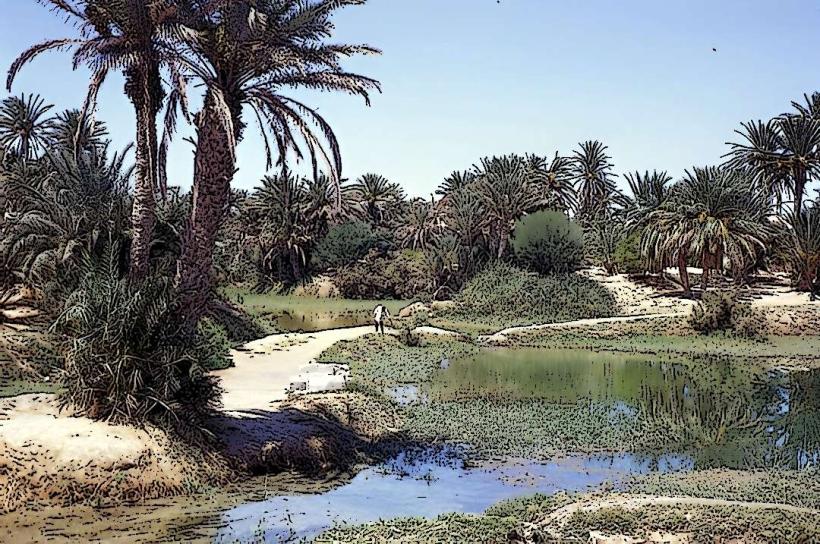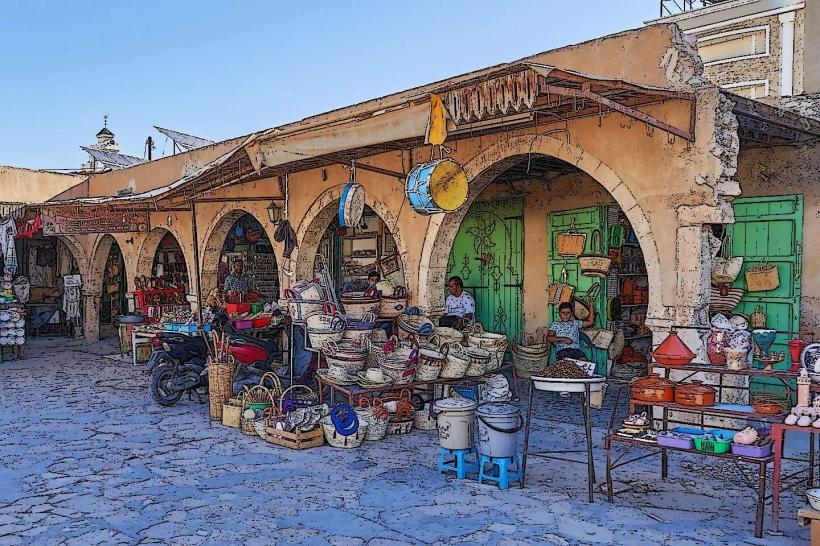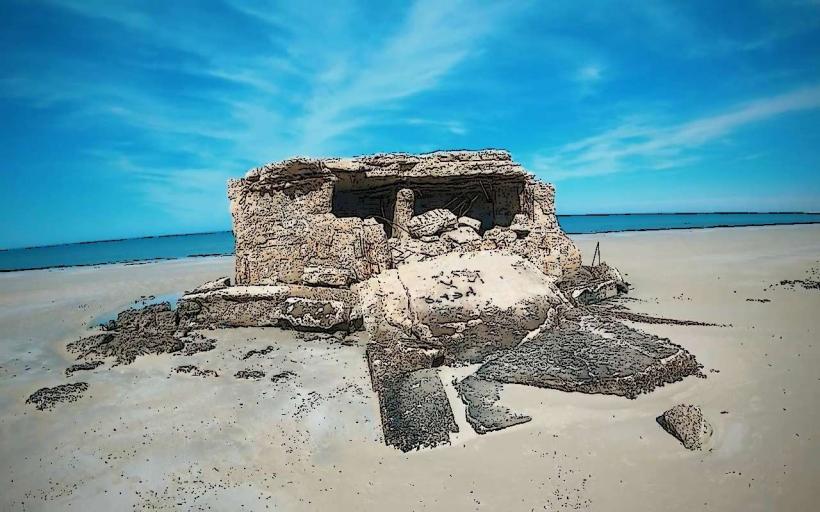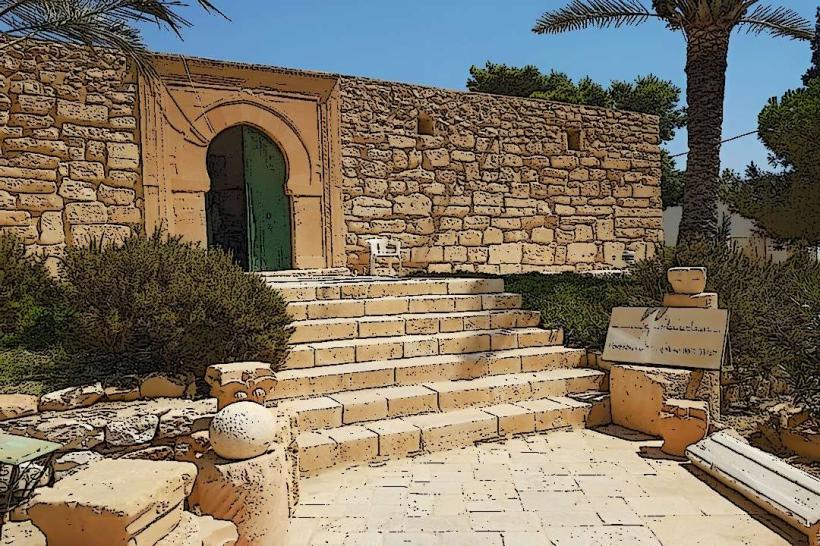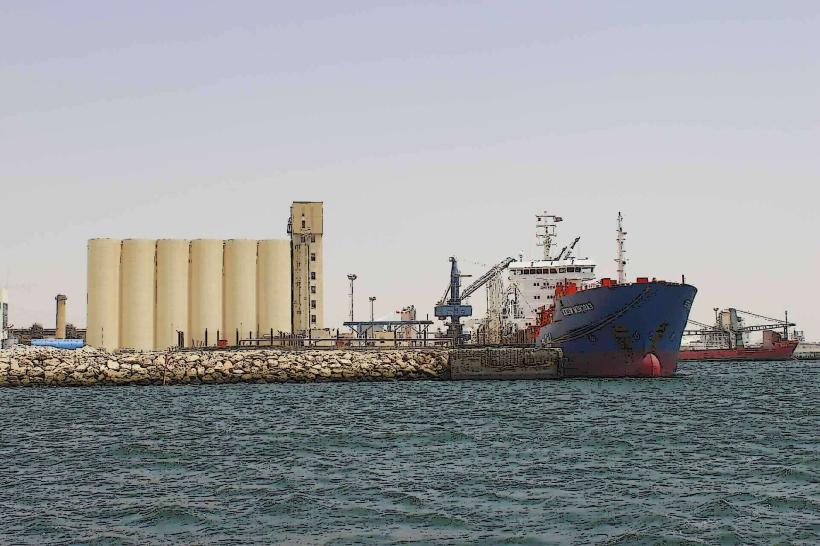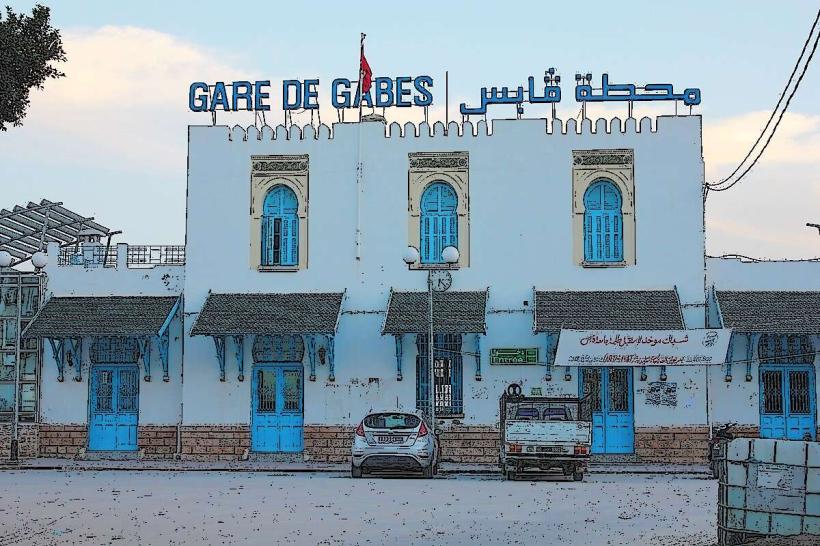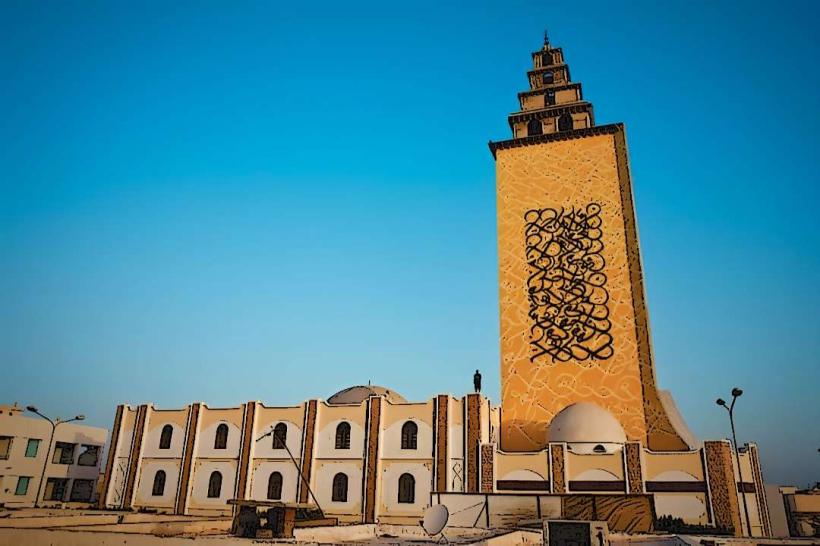Information
Landmark: Maison de la Culture de GabèsCity: Gabes
Country: Tunisia
Continent: Africa
Maison de la Culture de Gabès, Gabes, Tunisia, Africa
The Gabès Cultural Center (Maison de la Culture de Gabès) is a vital cultural establishment in the city of Gabès, Tunisia, providing a space for artistic expression, cultural activities, and community gatherings. Although detailed, up-to-date information about this specific center may be less readily available, it serves as a hub for promoting the region's diverse cultural traditions, arts, and intellectual exchange. Here is a more in-depth look at Gabès’ broader cultural scene, which includes the activities and events associated with its cultural centers and organizations.
1. General Overview of the Gabès Cultural Landscape
Gabès is known for its rich history and unique position as the only city in Tunisia that features an oasis along the coast. This combination of desert and sea has influenced its cultural identity, offering a blend of traditional Berber, Arab, and Mediterranean cultural elements. The city’s cultural institutions are focused on preserving this heritage while also promoting modern artistic expression.
Primary Focus: The Gabès Cultural Center is dedicated to a variety of artistic and cultural activities, ranging from music, theatre, and dance to film, literature, and visual arts. It provides a venue for both local and regional artists to express themselves while also hosting workshops, performances, and exhibitions.
Cultural Exchange: The center facilitates dialogue between local artists and international creators, fostering cultural exchange and mutual learning. This is particularly important in a city like Gabès, which has a strong connection to both Tunisia’s urban centers and rural, oases-based life.
2. Facilities and Amenities of the Cultural Center
The Gabès Cultural Center is structured to support a wide variety of cultural initiatives, with facilities designed for performances, exhibitions, and community activities:
Performance Spaces: There are theatres or stages for live music, dance, and theatrical performances. Local, regional, and international artists often perform here, providing a platform for both traditional Tunisian art forms and contemporary performances.
Exhibition Halls: The center likely hosts rotating art exhibitions, showcasing works from local painters, photographers, and sculptors, as well as traveling exhibitions that highlight international art.
Workshops and Educational Programs: The cultural center typically organizes workshops for community members, especially youth, in disciplines like art, music, and literature, providing a space for education and skill-building.
Cafes and Social Spaces: Often, cultural centers have cafes or lounges where visitors can socialize, discuss artistic ideas, and engage with the local community. These spaces also help create an atmosphere conducive to informal cultural exchange.
3. Key Events and Activities
Several major events take place in Gabès, drawing attention to its cultural vibrancy:
a) Gabès Cinéma Fen (GCFEN) Film Festival
Overview: The Gabès Cinéma Fen festival is one of the most important events in the city. This film festival celebrates Arab and African cinema, promoting films that explore local and regional issues while also offering a platform for international filmmakers.
Activities: The festival includes screenings, workshops, and panel discussions, often featuring both established filmmakers and emerging talent. It also provides opportunities for networking and collaboration in the field of cinema.
Significance: GCFEN is particularly noteworthy for its role in elevating Gabès as a cultural destination within Tunisia and the broader Maghreb region, showcasing its ongoing engagement with the arts.
b) Cultural Performances (Music, Dance, and Theatre)
The Gabès Cultural Center regularly hosts performances of traditional Tunisian music, including Musiques de l'Orient (Arabic music), Malouf, and Mezoued, as well as contemporary musical genres.
Traditional dance forms, such as Belly Dance and Folk Dance, are also frequently part of the cultural programming. These performances often celebrate the region’s Berber and Bedouin roots.
Theatre performances, particularly those that engage with local history and societal issues, also take place, contributing to the intellectual and artistic atmosphere of Gabès.
c) Workshops and Educational Programs
The center plays a pivotal role in providing workshops in diverse fields such as painting, calligraphy, photography, acting, and music. These activities encourage the involvement of local youth and foster artistic skills.
Local artists and intellectuals are often invited to lead discussions and workshops, creating an environment that encourages learning and cultural development.
d) Traditional Festivals
Gabès, as a cultural hub, hosts traditional festivals celebrating local customs, including the harvest season, oasis culture, and Islamic holidays. These festivals often incorporate traditional crafts, street performances, and culinary exhibitions, highlighting the region’s heritage.
4. Other Cultural Initiatives and Institutions in Gabès
In addition to the Gabès Cultural Center, the city features a range of cultural institutions that work in tandem to preserve and promote its rich heritage:
Gabès Ethnographic Museum: Located in the historic Sidi Boulbaba area, this museum showcases the life and customs of Gabès’ oasis communities, including traditional dress, crafts, and cultural practices. It offers a unique insight into the blend of desert and coastal cultures that define Gabès.
Agora Cultural Center: This contemporary cultural venue has been designed to engage with Gabès' evolving artistic scene. It serves as a meeting point for performing arts, literature readings, and art exhibitions.
Focus Gabès: Focus Gabès is an initiative that focuses on film and cinema. It organizes screenings and workshops, supporting the development of Gabès as a creative cinema hub.
5. Cultural Tourism and International Collaboration
Gabès has been working on positioning itself as a cultural tourism destination, combining its historical significance with modern cultural events.
International collaborations are an important part of the cultural center’s activities, offering exposure to global art forms while highlighting Gabès as a unique meeting point for Mediterranean and African cultures.
Conclusion
The Gabès Cultural Center, along with other cultural venues in the city, plays a critical role in preserving and promoting Tunisia’s rich heritage while encouraging contemporary creative expression. By offering a wide range of activities, from exhibitions and performances to workshops and festivals, it contributes to the cultural dynamism of the region and enhances Gabès’ position as an important cultural center in southern Tunisia. Whether through traditional music or modern cinema, the center provides a vital platform for artistic and intellectual engagement, making it an important fixture in Gabès' cultural landscape.

